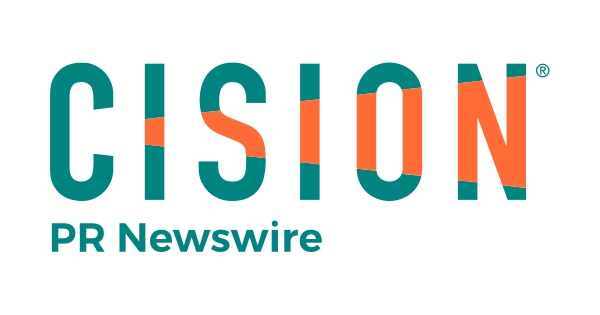EAGAN, Minn., Oct. 3, 2019 /PRNewswire/ — A recent study by Prime Therapeutics LLC (Prime) shows a sharp jump in the number of drug super spenders – members with pharmacy and medical drug therapy claims totaling $250,000 or more annually. With pharmaceutical manufacturers bringing more ultra-expensive treatments to market, Prime is using predictive analytics to identify the very small, but fast-growing group of drug super spenders to uncover savings opportunities and create optimal care strategies to better meet members’ and insurers (e.g., self-insured employers) needs and help control costs.
Specialty drugs, used to treat complex, chronic, or rare conditions such as cancers and inflammatory conditions have seen incredible growth in recent years and now make up more than 50% of total drug spend.1 IQVIA’s Medicine Use and Spending Report calculated that per capita drug spending on specialty drugs increased by 55% from 2013-2016. Treatments for rare diseases – often called orphan drugs – are increasing the number of specialty drugs available in the market and offer new hope and treatment options for people suffering with these rare conditions. However, this innovation comes with a hefty price tag ranging from $500,000 to over $2 million. Of 59 new drugs approved in 2018, 34 were for rare diseases.2
Prime’s study analyzed over 17 million commercially-insured members with a least one month of eligibility in the calendar years 2016, 2017, and 2018. In 2018, 4,869 were classified as drug super spenders. While small in numbers, this group of drug super spenders grew 63 percent from 2,994 members in 2016 and resulted in $800 million in additional drug costs. In that same timeframe, the number of drug super spenders with drug costs over $750,000 increased 38%, and drug costs for members over $750,000 increased to $417 million in 2018 from $297 million in 2016.
Innovative gene-based therapies and others that treat rare diseases are a challenge for health care insurers, especially since it is unknown how long the therapy will work throughout the patient’s lifetime and their clinical trials included small numbers of patients treated for a short period of time. While some are first time treatments for conditions that didn’t have a treatment previously, others provide hope of a cure for rare conditions that would traditionally require costly maintenance treatments for a lifetime. All of these innovative therapies are very expensive and might necessitate new payment models that don’t exist in the current health care system. And, with 10 or more rare disease gene therapies expected to be approved annually starting in 2025, health plans are preparing for the impact of these high-cost therapies on total drug spend.
“With continued growth in treatments for rare diseases, including one-time treatments that may carry million-dollar price tags, it’s very likely that health care cost will become even more skewed, with a smaller and smaller fraction of insured members accounting for a larger and larger portion of the total health care cost,” said Jonathan Gavras, M.D., senior vice president, chief medical officer at Prime. “We must work to ensure drug and gene therapies are priced appropriately to the value they provide, obtained and billed via the cost-effective channel with the highest quality patient management, and value-based contracts are in place to recoup costs if the drug or gene therapy does not maintain effectiveness.”
Prime’s deep dive into the root causes of drug super spending also identifies trends of potential medical benefit drug billing errors and dosing regimen optimization opportunities. Prime’s integrated pharmacy and medical data also uncovers when another treatment setting – like moving from a hospital to home infusion – could meet a member’s needs equally as well, frequently at a lower cost and improved patient convenience.
To manage high health care costs from drug super spenders, Prime collaborates with Blue plans to deploy utilization management and pharmacist consultation services whereby there are proactive conversations with providers and members regarding opportunities to optimize care and the benefit design.
Prime researchers will present this silver ribbon-winning research at Academy of Managed Care Pharmacy (AMCP) Nexus Oct. 29-Nov. 1 in National Harbor, Md.
- Prime Focus on Trend Report, Spring 2018. Accessed at: https://www.primetherapeutics.com/content/dam/corporate/Documents/Newsroom/Pressreleases/2018/document-commercial-trend-spring-2018.pdf
- Advancing Health Through Innovation: 2018 New Drug Therapy Approvals. U.S. Food & Drug Administration. https://www.fda.gov/media/120357/download. Accessed Sept. 20, 2019.
About Prime Therapeutics
Prime Therapeutics LLC (Prime) makes health care work better by helping people get the medicine they need to feel better and live well. Prime provides total drug management solutions for health plans, employers, and government programs including Medicare and Medicaid. The company processes claims and offers clinical services for people with complex medical conditions. Prime serves more than 28 million people. It is collectively owned by 18 Blue Cross and Blue Shield Plans, subsidiaries or affiliates of those plans. For more information visit www.primetherapeutics.com or follow @Prime_PBM on Twitter.
SOURCE Prime Therapeutics LLC

